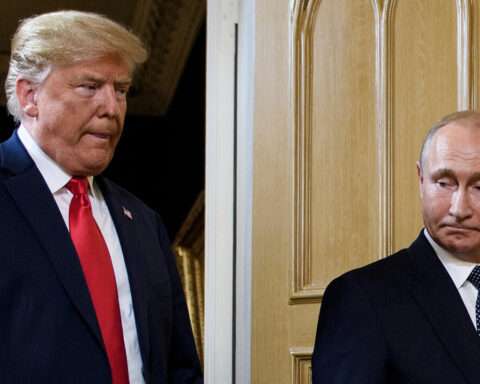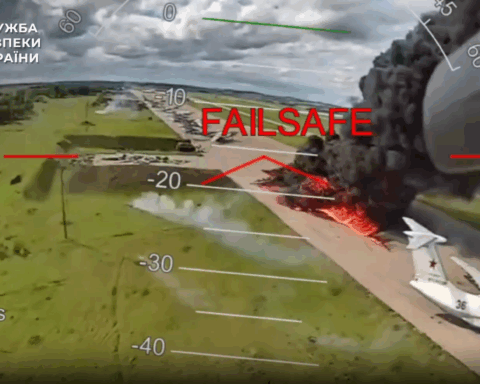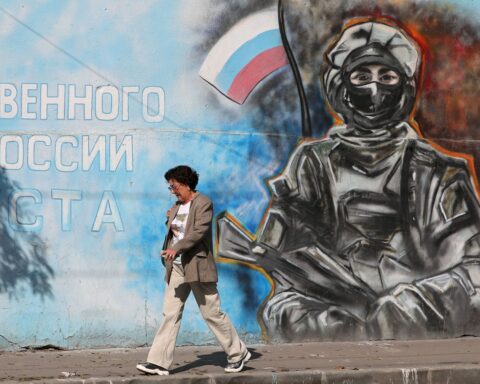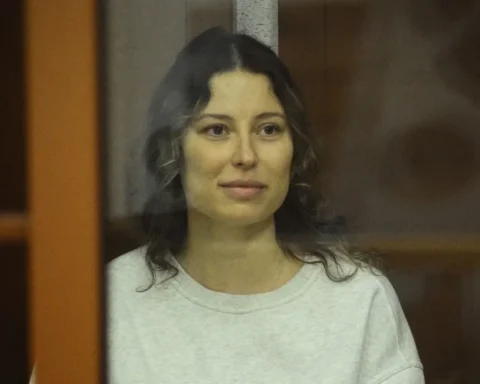The announcement by Russia’s Defense Ministry Saturday that 10,000 troops deployed along the border with Ukraine are to return to their permanent bases isn’t easing the alarm of Western officials, who see the risks mounting of Russian military action.
Russian President Vladimir Putin last week indicated his country’s willingness to sit down for talks with the United States and NATO amid soaring tensions, prompted by the Kremlin deploying more than 100,000 troops near its borders with Ukraine.
Russian Defense Minister Sergey Lavrov said in a televised interview Monday that Moscow was still waiting for NATO’s response to various conditions for talks to take place over security guarantees being sought from the West. They include Russian defense officials and generals participating in the negotiations. “We have said the conversation will make sense only with the direct participation of the military,” Lavrov said.
He said talks with U.S. officials would likely occur “right after the New Year’s Eve” but that Moscow is still waiting for an agreement over parameters for the negotiations with NATO.
The security guarantees the Russian leader is demanding would preclude any further NATO expansion and would roll back any NATO military presence in the Baltic or central European states which joined the Western alliance in waves since 1999. The Kremlin is adamant that former Soviet republics of Ukraine or Georgia should not join the Atlantic alliance.
While the United States and its NATO allies have said they’re willing to enter talks with Russia, Western diplomats have warned Russian security proposals are not acceptable in their current form. In a conference call last week with reporters, U.S. Assistant Secretary of State Karen Donfried said talks would have better prospects if Russia de-escalates its military buildup along the border with Ukraine.
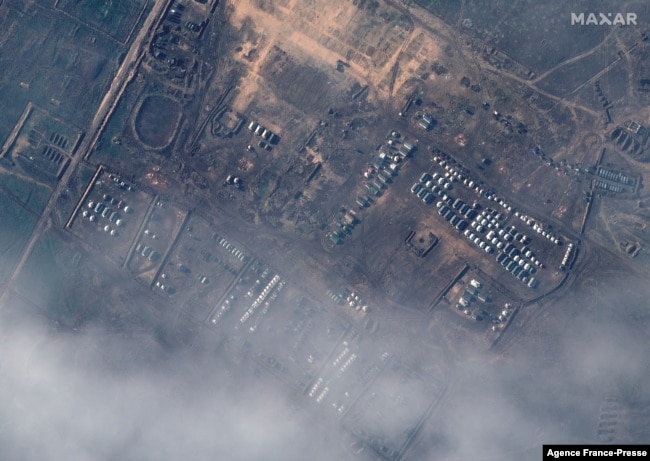
“Any dialogue with Russia must address NATO’s and others concerns about Russia’s continued threatening behavior and be based on the core principles and foundational documents of European security. We will not compromise the key principles on which European security is built, including that all countries have the right to decide their own foreign and security policy course free from outside interference,” she added.
U.S. and NATO officials have been adamant that it is unreasonable for Moscow to seek a veto over the foreign policy direction chosen by Kyiv or any other sovereign country.

Western officials say they remain fearful Moscow is still considering launching a full-scale invasion of its neighbor, unless NATO accedes to Kremlin demands that would upend the Western alliance as it has evolved since the end of the Cold War. U.S. and Western officials have expressed rising concerns that Russia is contemplating a repeat of 2014, when Moscow annexed Crimea and used armed proxies to seize a large part of the Donbass region in eastern Ukraine.
The troop withdrawal announced Saturday amounts to just 10% of the 122,000 Russian soldiers Western and Ukraine intelligence agencies calculate have been gathered along the border since October. Russian military officials said they are withdrawing about 10,000 troops from near Ukraine because they have completed their mission in snap drills, simulating a response to a “massive airstrike” on Russia.
Western defense analysts say the troops are being pulled back from the less militarily important south, while there are no signs of troops and equipment being withdrawn from Ukraine’s northern and northeastern borders, across which Russia would most likely strike.
Back and forth troop movements and increasingly direct rhetoric from Kremlin officials and President Vladimir Putin himself have been keeping Western powers in a state of nervous tension as they try to gauge the intentions of the Russian leader and maintain unity as they mull to what degree they should spurn or engage with the Kremlin.
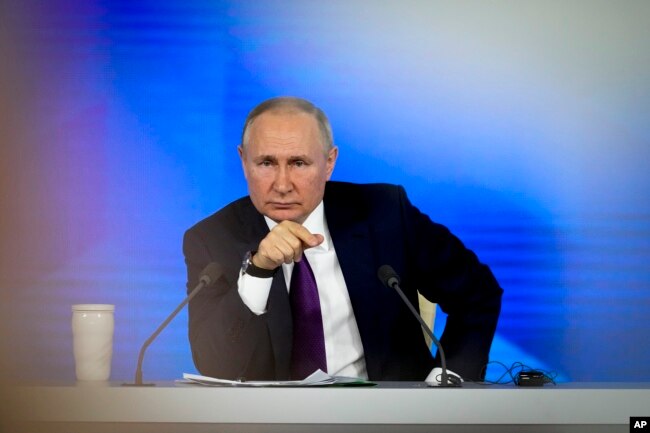
Midweek, President Putin said Russia would take “appropriate retaliatory” military steps in response to what he called the West’s “aggressive stance,” although on Thursday Putin appeared to lower the rhetorical volume by praising the United States for its “positive” reaction to Russia’s security proposals and said talks would take place in January.
But Kremlin spokesman Dmitry Peskov Sunday maintained the drumbeat of stern Russian warnings, saying Putin will ponder a slew of retaliatory options if the West fails to meet his demands for security guarantees.
NATO’s expansion to Ukraine or other ex-Soviet nations is “a matter of life or death for us,” Peskov said in an interview on Russian television. He added that a test firing Friday of Russia’s new Zircon hypersonic missiles was meant to make Russia’s security demands “more convincing.”
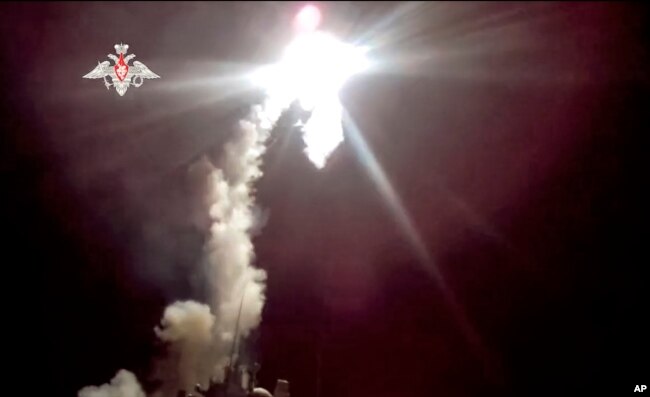
Friday’s test firings marked the first time Zircon missiles have been launched in a salvo.
Peskov said the Kremlin would set no artificial deadline for the talks, but meetings likely to go ahead in January would be enough to see if the U.S. is ready to accept Russian terms or would try to drag out the negotiation indefinitely, which he said would be unacceptable. His remarks about there being no artificial deadline contrasted with comments by Putin last week who said in a press conference that he wanted his security demands met “immediately. Right now.”
“Not sure this indicates much hope for talks to succeed,” tweeted Russian political analyst Vladimir Frolov.
Andrew Marshall of the Atlantic Council, a U.S.-based research group, says the geopolitical stakes are rising rapidly. “The outcome of this dispute could decisively rewrite the terms of security on the European continent for an entire generation — just as the decisions of the 1990s did after the end of the Cold War,” he said in an Atlantic Council commentary.
He added, “It could also produce one of two sharply contrasting narratives for the United States in Europe and globally: Negotiating successfully could underline the power of the United States working with its friends and be a model for confronting authoritarianism at gunpoint; but failure will be seen as another marker of American weakness and the unraveling of the transatlantic partnership.”
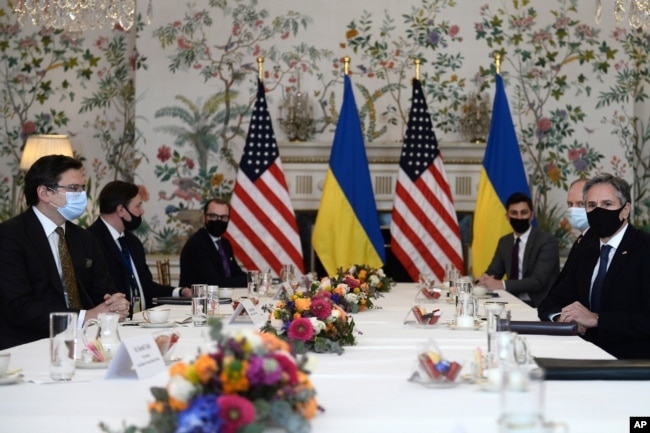
Ukraine’s foreign minister, Dmytro Kuleba, has been lobbying for Ukrainian officials to be able to participate in any security talks among the U.S., NATO and Russia. “We support the idea of the U.S., the EU, NATO talking to Russia as long as the primary topic is ending the international armed conflict, Russia’s war on Ukraine,” he wrote on Twitter Friday. “Decisions on Ukraine’s security can only be made with Ukraine at the table, and with the EU at the table on matters of wider European security,” he said.



